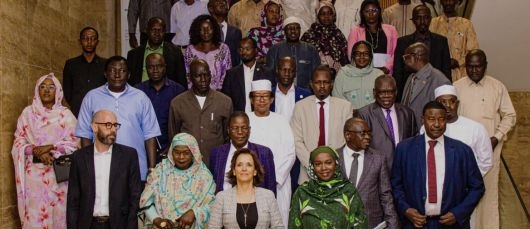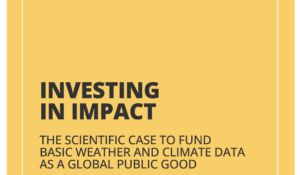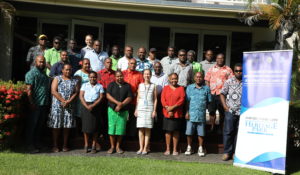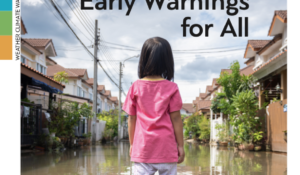WFP and Chad’s meteorological agency partner to modernize weather forecasting and enhance climate response in Chad

This Press Release was originally written and published by the World Food Programme
N’DJAMENA –The World Meteorological Organization’s Systemic Observations Financing Facility (SOFF) and the United Nations World Food Programme (WFP) have launched a five-year project aiming to modernise Chad’s meteorological network, improve weather forecasts, and anticipate the consequences of climate events in Chad.
The US$6.98 million SOFF investment in Chad, with WFP as the Implementing Entity and GeoSphere Austria as the peer advisor, supports the National Meteorological Agency in installing, upgrading, and ensuring the operation and maintenance of surface and upper-air stations to achieve GBON compliance, as mandated by the World Meteorological Congress. This includes investments in 33 surface stations, 6 upper-air stations, and human and institutional capacity development. These efforts are carried out in close collaboration with partners, including ASECNA and UNDP.
“Strengthening ANAM’s capacities through the SOFF project aligns perfectly with the government’s vision and policies, providing users with high-quality forecasts to anticipate climate extremes and mitigate disaster risks affecting populations and natural resources” said Fatima Goukouni Weddeye, Minister of Transport, Civil Aviation, and National Meteorology.
Upgraded meteorological infrastructure will improve the anticipation and management of climate extremes like droughts and floods, while strengthening national capacities through sustainable data management.
“Collaborating along the meteorological value chain is key to leveraging weather and climate data” said Markus Repnik, Director of the SOFF Secretariat. “Closing Chad’s data gap significantly improves weather and climate forecasts for Chad, Africa, and the world, as forecasts beyond three days require global data, including from Chad. SOFF’s investments support Chad’s objectives of increasing climate resilience, protecting communities, and the agricultural sector”
Sarah Gordon-Gibson, WFP’s Country Director and Representative in Chad, noted, “The people of Chad are among the hardest hit by the current climate crisis and face some of the highest levels of food insecurity globally. Reliable meteorological data is essential to anticipate, alert, and respond to crises and their impact on people’s food security”.
The latest Cadre Harmonisé food security analysis indicates that over 2.4 million people in Chad will face food insecurity by 2025, potentially rising to 3.7 million during the June-August lean season. Food insecurity in Chad is primarily driven by conflicts and a decline in agricultural production, particularly due to recent floods in the south, the country’s breadbasket.
About
The United Nations World Food Programme is the world’s largest humanitarian organization saving lives in emergencies and using food assistance to build a pathway to peace, stability and prosperity for people recovering from conflict, disasters and the impact of climate change.
Systematic Observations Financing Facility (SOFF): SOFF is a UN specialized fund co-created by WMO, UNDP and UNEP to close the climate and weather observations data gap in countries with the most severe shortfalls in observations, prioritizing Least Developed Countries (LDCs) and SIDS. SOFF provides long term financial and technical assistance to support the acquisition and international sharing of basic weather and climate observations, according to the internationally agreed Global Basic Observing Network (GBON) regulations. SOFF is a foundational element and delivery vehicle of the UN Early Warnings for All Initiative.
YOU MAY ALSO LIKE...





